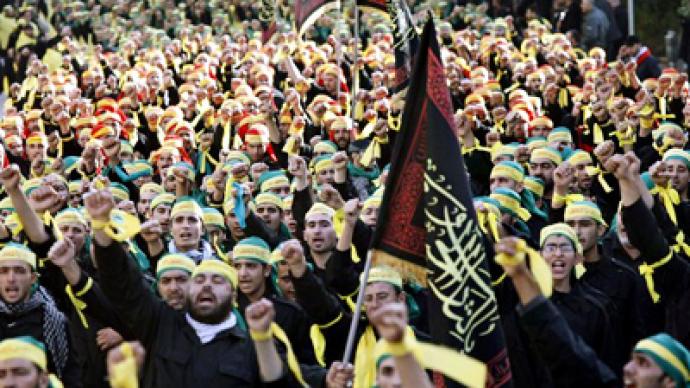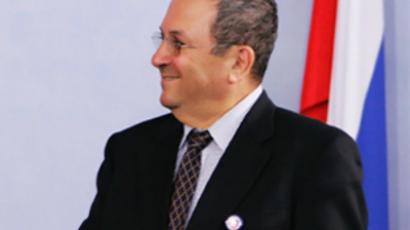Hezbollah rallies in wake of Lebanese government collapse

The Shia political group Hezbollah pulled out of the coalition government on Wednesday in a political gamble that may see the group attract greater grassroots support.
Hezbollah pulled out of the government in protest over Lebanon’s continued cooperation with an UN international criminal tribunal investigating the 2005 assassination of Prime Minister Rafik Hariri. The tribunal, which is being held in The Hague, opened in March 2009Rafik Hariri was assassinated on February 14, 2005 when 1,000 kilograms of TNT were detonated as his motorcade was making its way through Beirut, the Lebanese capital. In Lebanon, blame for Hariri’s murder gets equally divided between Syria, which had a military presence in the country at the time of the attack, and Israel, which, as Hezbollah argues, wanted Syrian forces expelled prior to the 2006 Israeli invasion of Lebanon.Hezbollah leaders say the UN tribunal is influenced by the US and Israel and demanded that Prime Minister Saad Hariri, Rafik Hariri’s son, reject the findings of the court. Hariri refused.On Wednesday, just as Prime Minister Hariri was meeting with US President Barack Obama in Washington, Hezbollah announced its decision to pull out of the government, throwing the country into chaos, while leaving a huge political void. Meanwhile, the chairman of the Russian Federation Council Foreign Affairs Committee, Mikhail Margelov said the entire situation in the Middle East hinges on what happens next in Lebanon, especially if Hezbollah strengthens its political base in the wake of the crisis."This country is facing a serious crisis,” Margelov told Interfax on Thursday. “The situation in the Middle East as a whole will largely depend on the orientation of the new Cabinet.”"The composition of this Cabinet interferes with the interests of Israel – the strengthening of Hezbollah's political influence in Lebanon is inescapably fraught with a further escalation of tensions in the region,” Margelov continued.The Senator added that the situation could aggravate the stalemate in the Middle East Peace settlement process, suggesting that it may be the right time for Lebanon to start considering candidates for the vacated office of the prime minister.Meanwhile, the office of Lebanon President Michel Suleiman issued a statement on Thursday requesting Hariri to continue managing the country's daily affairs in a caretaker capacity until a new cabinet is formed.Hezbollah, which is said to be supported by Syria and Iran, announced that they will continue working “within the framework of the political system” to advance their agenda. Political analysts point to this comment as an optimistic sign that Lebanon will not be reduced to violence when the UN tribunal announces its final decision.The Associated Press, quoting a senior Israeli military officer, says thousands of troops in the north are on alert following the fall of the Lebanese government.Israel is concerned that the political standoff in Lebanon will trigger renewed violence on the Lebanese-Israel border.In July 2006, Hezbollah and Israel fought a 34-day conflict on Lebanese territory, which resulted in the death of some 1,300 individuals, mostly Lebanese civilians. The conflict was responsible for displacing hundreds of thousands of Lebanese and Israelis.Robert Bridge, RT













